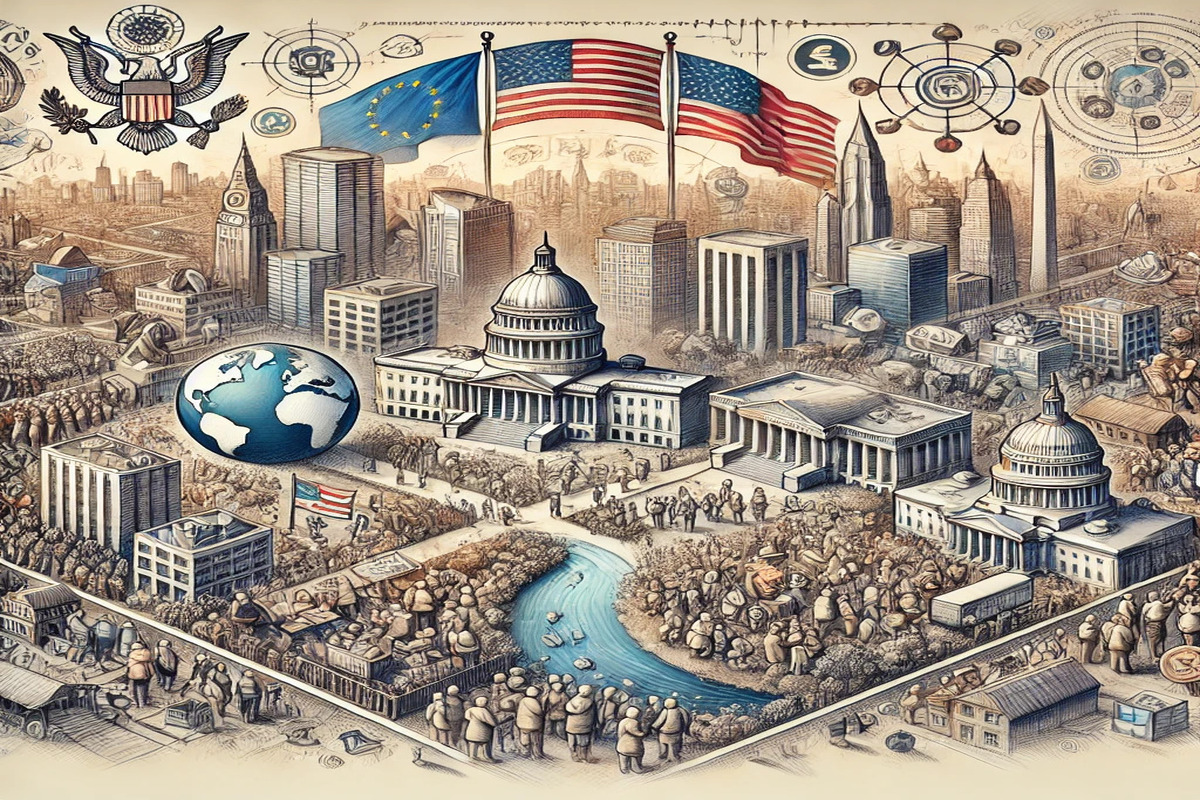In an increasingly interconnected world, global events don’t just stay on the international stage—they make their way into the very fabric of local politics and community life. Read More
Global Trade and Local Economic Policies
Global trade dynamics have a significant impact on local economies. For example, international trade agreements, tariffs, and trade wars can alter the economic landscape of cities dependent on imports and exports. Cities with major ports, like Los Angeles or New York, are particularly sensitive to these changes. For instance, tariffs imposed on certain goods can lead to increased costs for local businesses and higher prices for consumers. Conversely, trade agreements that lower barriers can boost local economies by expanding market access for local products.
Local governments may need to adjust their economic policies in response to these global shifts. This might involve providing support to affected industries, investing in workforce development, or encouraging diversification to mitigate the impact of fluctuating trade policies.
Climate Change and Urban Sustainability
The global challenge of climate change profoundly impacts city policies and community issues. International agreements, such as the Paris Agreement, set targets for reducing greenhouse gas emissions and promoting sustainability. Cities are often at the forefront of implementing these goals through local regulations and initiatives.
For example, cities might adopt stricter emissions standards, invest in renewable energy projects, or implement green building codes. Local policies aimed at reducing the urban carbon footprint—such as expanding public transit, promoting energy-efficient buildings, or enhancing waste management practices—are influenced by global environmental commitments.
Communities also feel the effects of climate change through increased frequency of extreme weather events, rising sea levels, and heatwaves. Local governments must adapt their infrastructure and emergency response plans to address these challenges and protect residents.
Immigration Policies and Community Dynamics
National immigration policies have direct consequences for local communities, particularly in cities with significant immigrant populations. Changes in federal immigration laws can influence local government strategies and community support services.
For instance, policies affecting undocumented immigrants or visa regulations can impact local economies, educational institutions, and healthcare systems. Cities may implement sanctuary policies or provide additional resources for immigrant services to address the needs of their diverse populations.
Local governments might also engage in advocacy at the federal level to influence immigration policy or collaborate with community organizations to support immigrant integration and address related challenges.
International Relations and Local Security
Global political tensions and international conflicts can affect local security and public safety. For example, international disputes or acts of terrorism may prompt heightened security measures or emergency preparedness initiatives in cities. Local governments often coordinate with federal agencies to enhance security protocols and respond to potential threats.
Cities may also need to address the impacts of international relations on their local populations, such as supporting refugee resettlement programs or managing the social implications of global conflicts. Local leaders play a crucial role in ensuring community safety and maintaining public order amid international uncertainties.
Global Health Crises and Local Responses
Global health crises, such as pandemics, have profound effects on local governance and community life. The COVID-19 pandemic demonstrated how global health emergencies can lead to significant local policy shifts. Cities implemented measures such as lockdowns, mask mandates, and vaccination campaigns in response to federal guidelines and international health recommendations.
Local health departments and emergency services work to manage public health responses, coordinate with state and federal agencies, and address the needs of affected residents. The impact on local businesses, schools, and healthcare systems highlights the interconnectedness of global health issues and local governance.
International Trade and Investment Opportunities
Global economic trends and international investment flows can create opportunities for local economic development. Cities may attract foreign direct investment or engage in international trade partnerships to boost local industries. For example, cities with tech hubs or financial centers might benefit from global investment in innovation or technology sectors.
Local governments often develop strategies to leverage these opportunities, such as offering incentives for foreign businesses, supporting international trade missions, or fostering innovation ecosystems. These initiatives can drive economic growth and enhance the city’s global profile.
Conclusion: Navigating the Global-Local Nexus
The intersection of national and local politics reveals how global events shape city policies and community issues. From trade and climate change to immigration and health crises, the impact of international developments is felt at the local level in diverse and significant ways.
Understanding this dynamic helps local leaders and residents navigate the complexities of governance in a globalized world. By aligning local policies with broader national and international trends, cities can effectively address the challenges and opportunities presented by global events, ultimately fostering resilient and adaptive communities.
As global events continue to evolve, the ability to manage their impact on local governance will be crucial for maintaining vibrant, inclusive, and responsive urban environments.

